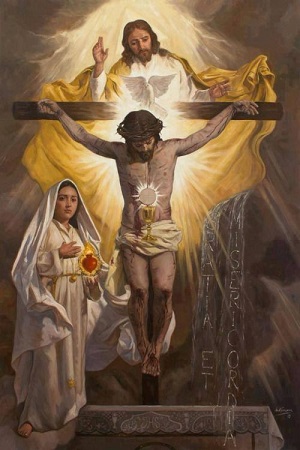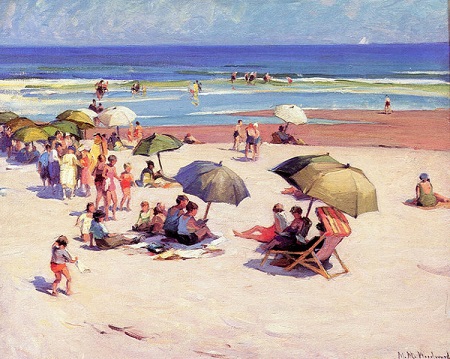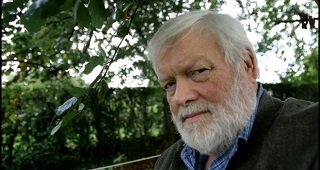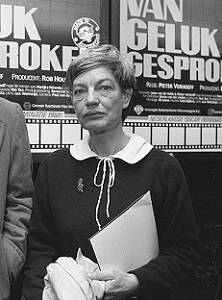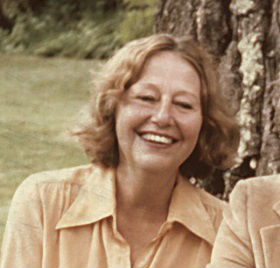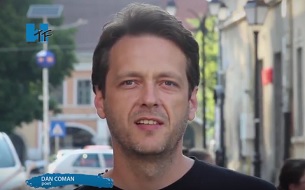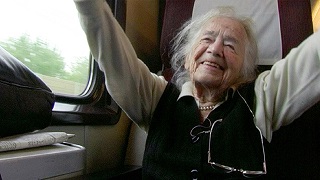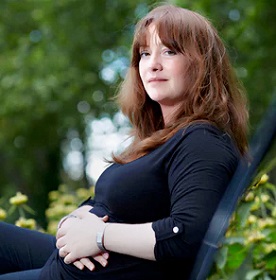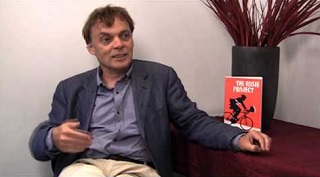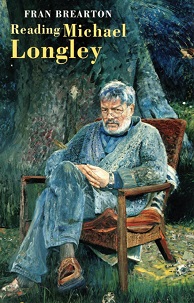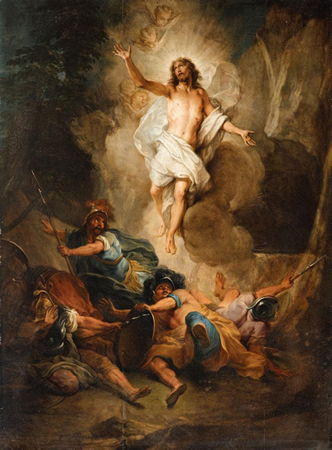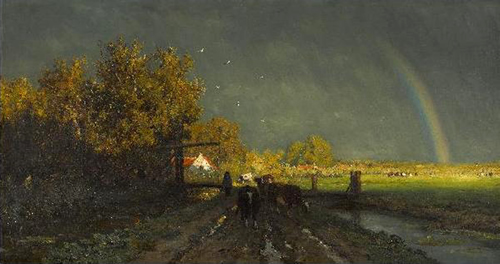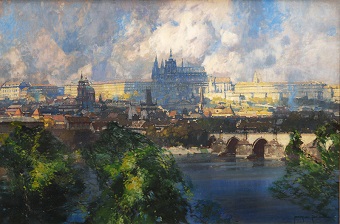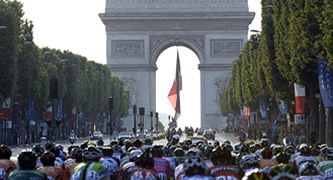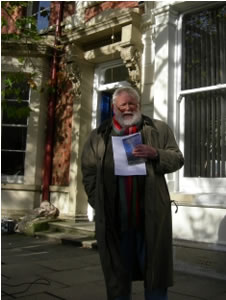De Duitse schrijfster, dichteres en vertaalster Hilde Domin werd geboren in Keulen als Hilde Löwenstein op 27 juli 1909. Zie ook alle tags voor Hilde Domin op dit blog.
Inselmittag
Wir sind Fremde
von Insel
zu Insel.
Aber am Mittag, wenn uns das Meer
bis ins Bett steigt
und die Vergangenheit
wie Kielwasser
an unsern Fersen abläuft
und das tote Meerkraut am Strand
zu goldenen Bäumen wird,
dann hält uns kein Netz
der Erinnerung mehr,
wir gleiten
hinaus,
und die abgesteckten
Meerstraßen der Fischer
und die Tiefenkarten
gelten nicht
für uns.
Gleichgewicht
Wir gehen
jeder für sich
den schmalen Weg
üst ohne Angst –
im Takt unsres Herzens,
als seien wir beschützt,
solange die Liebe
nicht aussetzt.
So gehen wir
zwischen Schmetterlingen und Vögeln
in staunendem Gleichgewicht
zu einem Morgen von Baumwipfeln
– grün, gold und blau –
und zu dem Erwachen
der geliebten Augen.
Alle meine Schiffe
Alle meine Schiffe
haben die Häfen vergessen
und meine Füße den Weg.
Es wird nicht gesät und nicht geerntet
denn es ist keine Vergangenheit
und keine Zukunft,
kaum eine Bühne im Tag.
Nur der kleine
zärtliche Abstand
zwischen dir und mir,
den du nicht verminderst.
Hilde Domin (27 juli 1909 – 22 februari 2006)
De Ierse dichter Michael Longley werd geboren op 27 juli 1939 in Belfast. Zie ook alle tags voor Michael Longley op dit blog.
Laertes
When he found Laertes alone on the tidy terrace, hoeing
Around a vine, disreputable in his garden duds,
Patched and grubby, leather gaiters protecting his shins
Against brambles, gloves as well, and, to cap it all,
Sure signs of his deep depression, a gostskin duncher,
Odysseus sobbed in the shade of a pear-tree for his father
So old and pathetic that all he wanted then and there
Was to kiss him and hug him and blurt out the whole story,
But the whole story is one catalogue and then another,
So he waited for images from that formal garden,
Evidence of a childhood spent traipsing after his father
And asking for everything he saw, the thirteen pear-trees,
Ten apple-trees, forty fig-trees, the fifty rows of vines
Ripening at different times for a continuous supply,
Until Laertes recognised his son and, weak at the knees,
Dizzy, flung his arms around the neck of great Odysseus
Who drew the old man fainting to his breast and held him there
And cradled like driftwood the bones of his dwindling father.
Badger
For Raymond Piper
1
Pushing the wedge of his body
Between cromlech and stone circle,
He excavates down mine shafts
And back into the depths of the hill.
His path straight and narrow
And not like the fox’s zig-zags,
The arc of the hare who leaves
A silhouette on the sky line.
Night’s silence around his shoulders,
His face lit by the moon, he
Manages the earth with his paws,
Returns underground to die.
Michael Longley (Belfast, 27 juli 1939)
De Amerikaanse schrijver Theodore Herman Albert Dreiser werd geboren op 27 juli 1871 in Sullivan, Indiana. Zie ook alle tags voor Theodore Dreiser op dit blog.
Uit: The Last Titan (Biografie door Jerome Loving)
“Whitman is the true precursor of American literature in the twentieth century, but he wrote poetry instead of prose—many denied it even the claim to poetry—which kept it out of general circulation among popular readers during his lifetime. But Sister Carrie was a novel, a genre more accessible to the average reader, especially women, who made up the great majority of American readers at the end of the nineteenth century. One of them was allegedly Mrs. Frank Doubleday.
Dreiser probably began Sister Carrie in late September of 1899, shortly after returning to New York City. Henry returned, too, again leaving Maude and Dottie behind, to resume for the next month or so his residence with the Dreisers, and he either continued or began to write A Princess of Arcady. While Henry imagined a conventional romance in which the heroine is sent to a convent school to preserve her innocence until the proper time for marriage, Dreiser began his own fable about an American princess, “two generations removed from the emigrant,” who rules only in her dreams and loses her innocence at almost the first opportunity. Henry wrote an idyll about a “nun” whose youthful sexuality is never violated, while Dreiser wrote a novel about a sister who commits adultery. It is generally thought that Dreiser was thinking exclusively of his sister Emma and not even remotely—or ironically—about a nun when he gave his Carrie the title of “Sister” at the top of his page, but Henry’s use of nuns and a convent in his book may have had an associative influence. Dreiser’s romantic chapter titles, which were added between the first draft and the revision published by Doubleday, suggest the moral contrast and underscore the departure of this gritty tale of two cities from the Victorian fiction of its day.”

Theodore Dreiser (27 juli 1871 – 28 december 1945)
De Nederlandse schrijfster en psychologe Marijke Höweler werd geboren in Koog aan de Zaan op 27 juli 1938. Zie ook alle tags voor Marijke Höweler op dit blog.
Uit: Het Huis
“Pas toen ik ze er voor de tweede keer naartoe zag gaan, begon ik beter op te letten. Zij droeg een zonnebril, die had ze in het haar gestoken. Hij deed het wagentje op slot, nadat hij uitgestapt was. Van vee zou dus geen sprake zijn. Hoogstens een pony voor het kind. Meer zou er niet van komen. Van maaien evenmin. Ik zag de woelmuizen al scharrelen in het hoge gras, op weg om mijn andijvie op te vreten. Toch trokken ze me wel. Ik had het idee dat die mij veel vertier konden gaan geven. Ik zorgde daarom dat ik wat te doen had op het erf zodra ze weer naar buiten kwamen.
‘Van Wiesenberg,’ zei hij en stak zijn hand uit.
Aangenaam,’ zei ik en boog mijn hoofd, iets waar ik bij de burgemeester ook wel last van heb en wat ik maar niet af kan leren. Daarna gaf ik zijn vrouw een hand. ‘Lisa,’ zei die. Maar niet zoals je het opschrijft, ze zei: Laisa. Het kind had ook een naam.
‘Goed weer,’ zei ik en zweeg. Zodat zij mij wat vragen konden als zij wilden.
Dat deden ze ook wel, maar het was heel wat anders dan ik had willen weten als ik in hun plaats geweest was.
‘Het is hier schitterend,’ zei Laisa. ‘Bevalt het wonen u hier?’
Ik wist niet zo gauw wat ik daarop moest zeggen. Ik woon hier al mijn leven lang. Dan kan je moeilijk van bevallen spreken. Ik zei dus ‘ja’.
‘Dus u bevalt het wel,’ zei ze nadenkend.
‘Er is veel ongedierte,’ zei ik. En ik wees ze de moestuin aan. Ze gaf geen antwoord, dus zo stonden we een tijdje.
‘Vindt u het aan te raden,’ vroeg hij.
‘Dat hangt er helemaal vanaf, wat ie ervoor vraagt.’ Ik keek eens om me heen. Ik was wel benieuwd hoeveel hij er opgelegd had nou het om vreemden ging. Maar ook stond ik nog steeds over dat ‘schitterend’ na te denken. Het land hóórt namelijk bij mij. En ook mezelf zou ik niet gauw zo noemen. Toen keek ik weer eens op en zag dat ze nog steeds stonden te wachten. Het kind was naar het h
ek gelopen en wees de schapen aan. ‘Apen,’ zei het. Het had zijn vingers in zijn mond.”
Marijke Höweler (27 juli 1938 – 5 mei 2006)
De Franse schrijver Julien Gracq werd geboren op 27 juli 1910 als Louis Poirier in Saint-Florent-le-Vieil bij Angers. Zie ook alle tags voor Julien Gracq.
Uit: Le Rivage des Syrtes
«Il y a dans notre vie des matins privilégiés où l’avertissement nous parvient, où dès l’éveil résonne pour nous, à travers une flânerie désœuvrée qui se prolonge, une note plus grave, comme on s’attarde, le cœur brouillé, à manier un à un les objets familiers de sa chambre à l’instant d’un grand départ. Quelque chose comme une alerte lointaine se glisse jusqu’à nous dans ce vide clair du matin plus rempli de présages que les songes; c’est peut-être le bruit d’un pas isolé sur le pavé des rues, ou le premier cri d’un oiseau parvenu faiblement à travers le dernier sommeil; mais ce bruit de pas éveille dans l’âme une résonance de cathédrale vide, ce cri passe comme sur les espaces du large, et l’oreille se tend dans le silence sur un vide en nous qui soudain n’a pas plus d’écho que la mer. Notre âme s’est purgée de ses rumeur et du brouhaha de foule qui l’habite; une note fondamentale se réjouit en elle qui en éveille l’exacte capacité. Dans la mesure intime de la vie qui nous est rendue, nous renaissons à notre force et à notre joie, mais parfois cette note est grave et nous surprend comme le pas d’un promeneur qui fait résonner une caverne: c’est qu’une brèche s’est ouverte pendant notre sommeil, qu’une paroi nouvelle s’est effondrée sous la poussée de nos songes, et qu’il nous faudra vivre maintenant pour de longs jours comme dans une chambre familière dont la porte battrait inopinément sur une grotte.»

Julien Gracq (27 juli 1910 – 22 december 2007)
De Britse dichter en schrijver Hilaire Belloc werd geboren te St-Cloud op 27 juli 1870. Zijne moeder was een Engelsche en keerde na vader’s dood, met hem naar Engeland terug. Een der voorvaderen van Bellocs moeder vocht als officier te Fontenay, vier ooms van zijn vader waren generaals onder Napoleon. Als leerling van de Birmingham Oratory onderging hij den invloed van Kardinaal Neurman. Hij voldeed aan zijn militaire plichten in Frankrijk en kwam terug om in Oxford te studeren. Hij begon als schrijver met kinderboeken. Vervolgens gaf hij monografieën van Danton en Robespierre uit en publiceerde hij zijn ironische roman ‘Emanuel Burden’. Zijn studies bundelde hij onder de titel: ‘On Nothing’, ‘On Anything’, ‘On’, Romans: ‘Mr Clutterbuch’s election’, ‘A change in the Cabinet’, ‘The Mercy of Allah’,
Uit: Cranmer
“For the genius of Cranmer in this supreme art of his—the fashioning of ryhthmic English prose—was not of that spontaneous kind which produces great sentences or pages in flashes, as it were, unplanned, surging up of themselves in the midst of lesser matter; he was not among prose writers what such men as Shakespeare or Ronsard are among the poets—voluminous, uneven, and without conscious effort compelled to produce splendours in a process of which they are themselves not aware. He was, on the contrary, a jeweller in prose, a man who sat down deliberately to write in a particular way when there was need or opportunity for it, but who, on general occasions, would write as might any other man. We have a great mass of what he did, in long letters to [Anne] Boleyn, to the King and to [Thomas] Cromwell, careful arguments transcribed at length in his disputations, as in the famous one with [Bishop Stephen] Gardiner on the Real Presence; it is always scholar’s work, careful and lucid. But when he sits down to produce a special effect all changes. He begins to carve with skill and in the hardest material. He is absorbed in a particular task, creative, highly conscious, and to his sense of beauty vastly satisfactory. . . .
He was not of those whom a fountain of creation fills and who declaim, as it were, great matter. His art was of the kind which must work very slowly and in secret, isolated; his sentences when he desired to produce his effect must be perfected in detail, polished, lingered over, rearranged, until they had become so that one could them with the finger-nail and find no roughness.”
Hilaire Belloc (27 juli 1870. – 16 juli 1953)
De Russische schrijver Vladimir Korolenko werd geboren op 27 juli 1853 in Zjitomir (Volynië). Zie ook alle tags voor Vladimir Korolenko op dit blog.
Uit: The Old Bell-Ringer
“The old man went to the opening in the tower and leaned on the banister. In the darkness below, around the church, he made out the village cemetery in which the old crosses with their outstretched arms seemed to protect the ill-kept graves. Over these bowed here and there a few leafless birch trees. The aromatic odor of young buds, wafted to Mikheyich from below, brought with it a feeling of the melancholy of eternal sleep.
Where would he be a year hence? Would he again climb to this height, beneath the brass bell to awaken the slumbering night with its metallic peal, or would he be lying in a dark corner of the graveyard, under a cross? God knows!… He was prepared; in the meantime God granted him the happiness of greeting the holiday once more.
“Glory be to God!” His lips whispered the customary formula as his eyes looked up to the heaven bright with a million twinkling stars and made the sign of the cross.
“Mikheyich, ay, Mikheyich!” called out to him the tremulous voice of an old man. The aged sexton gazed up at the belfry, shading his unsteady, tear-dimmed eyes with his hand, trying to see Mikheyich.
“What do you want? Here I am,” replied the bell-ringer, looking down from the belfry. “Can’t you see me?”
“No, I can’t. It must be time to ring. What do you say?”
Both looked at the stars. Myriads of God’s lights twinkled on high. The fiery Wagoner was above them. Mikheyich meditated.
“No, not yet a while. … I know when. …”
Indeed he knew. He did not need a watch. God’s stars would tell him when. … Heaven and earth, the white cloud gently floating in the sky, the dark forest with its indistinct murmur and the rippling of the stream enveloped by the darkness—all that was familiar to him, part of him. Not in vain had he spent his life here.

Vladimir Korolenko (27 juli 1853 – 25 december 1921)
De Engelstalige schrijver Lafcadio Hearn werd geboren op 27 juli 1850 op het Griekse eiland Lefkada. Hij was van Iers-Griekse afstamming. In 1863 werd hij naar een school in Engeland gestuurd voor zijn opleiding. In 1869 betaalde een oudtante voor hem de reis naar de VS. Hij werkte in Cincinnati in een drukkerij, waar hij met het werk van Gustave Flaubert en Charles Baudelaire in aanraking kwam. In 1874 ging hij als journalist werken in New Orleans en begon hij ook uit het Frans en het Spaans te vertalen. In 1890 vertrok hij naar Japan. Hij werkte er als leraar, trouwde met een Japanse en kreeg in 1896 een leerstoel aan de Keizerlijke Universiteit van Tokyo. Lafcadio is vooral bekend geworden met zijn boeken over Japan
Uit: Glimpses of Unfamiliar Japan
“It is with the delicious surprise of the first journey through Japanese streets—unable to make one’s kuruma-runner understand anything but gestures, frantic gestures to roll on anywhere, everywhere, since all is unspeakably pleasurable and new—that one first receives the real sensation of being in the Orient, in this Far East so much read of, so long dreamed of, yet, as the eyes bear witness, heretofore all unknown. There is a romance even in the first full consciousness of this rather commonplace fact; but for me this consciousness is transfigured inexpressibly by the divine beauty of the day. There is some charm unutterable in the morning air, cool with the coolness of Japanese spring and wind-waves from the snowy cone of Fuji; a charm perhaps due rather to softest lucidity than to any positive tone—an atmospheric limpidity, extraordinary, with only a suggestion of blue in it, through which the most distant objects appear focused with amazing sharpness. The sun is only pleasantly warm; the jinrikisha, or kuruma, is the most cosy little vehicle imaginable; and the street-vistas, as seen above the dancing white mushroom-shaped hat of my sandaled runner, have an allurement of which I fancy that I could never weary.
Elfish everything seems; for everything as well as everybody is small, and queer, and mysterious: the little houses under their blue roofs, the little shop-fronts hung with blue, and the smiling little people in their blue costumes. The illusion is only broken by the occasional passing of a tall foreigner, and by divers shop-signs bearing announcements in absurd attempts at English. Nevertheless, such discords only serve to emphasize reality; they never materially lessen the fascination of the funny little streets.”
Lafcadio Hearn (27 juli 1850 – 26 september 1904)
Zie voor onderstaande schrijvers ook mijn blog van 27 juli 2007.
De Poolse dichteres Rajzel Zychlinski werd geboren op 27 juli 1910 in Gąbin, Polen. Zie en ook mijn blog van 27 juli 2008.
De Russische dichter en soldaat Denis Vasilyevich Davydov werd geboren op 27 juli 1784 in Moskou.. Zie ook mijn blog van 27 juli 2008.
De Franse schrijver Alexandre Dumas fils werd geboren op 27 juli 1824 in Parijs.
